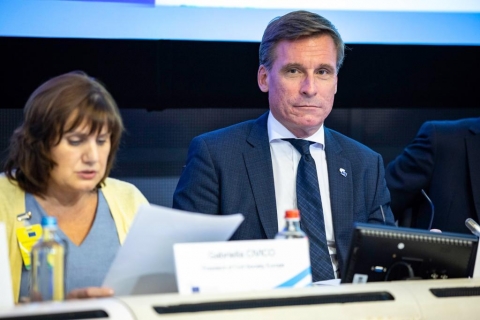European Economic
and Social Committee
The EU has to ensure that civil society is protected, not attacked
The EESC has strongly criticised the EU for failing to ensure proper support and funding for civil society organisations working in the area of fundamental rights, the rule of law and democracy.
In a debate with the president of Civil Society Europe, Gabriella Civico, held at its plenary session on 21 September, the EESC warned of the dire situation for CSOs in Europe, which are increasingly subject to a range of pressures, from financial constraints to smear campaigns and concerted attacks on their work and credibility from a variety of actors.
Furthermore, CSOs working on the most difficult social and political issues, including watchdog organisations and those promoting equality and non-discrimination, tend to have the most serious financing problems, and this has been seriously jeopardising their critical mission of holding those in power to account and preserving democracy in Europe.
In its opinion on Civil society support and funding in the area of fundamental rights, the rule of law and democracy, adopted at the plenary session, the EESC said that this needed to be addressed immediately.
To this end, the EESC advocates setting up a financial instrument specifically dedicated to CSOs working on human rights and democracy within the EU. A platform similar to "Protect Defenders" for human rights defenders working in EU Member States should also be established.
A special focus must be put on the inadequate working conditions and meagre income of people employed in the civil society sector, who are often working under great stress, with enormous risks to their mental health.
"At a time when democracy is in crisis, the responsibility of European institutions is huge. We need more than just good intentions. We need concrete actions that help the development of European civil society, including in the candidate countries," said rapporteur for the opinion Cristian Pîrvulescu.
EESC President Oliver Röpke announced that, in line with its recent decision to integrate "enlargement candidate members" into its work, the EESC will now also monitor developments affecting civil society in "EU hopeful" countries. To do this, it plans to extend the mandate of its Fundamental Rights and Rule of Law Group (FRRL) – which, since 2018, has carried out numerous missions to Member States to check on the situation of CSOs – to also cover EU candidate countries.
"We cannot let fundamental rights, the rule of law, and democracy stop at the EU border!", Mr Röpke said. (ll)
